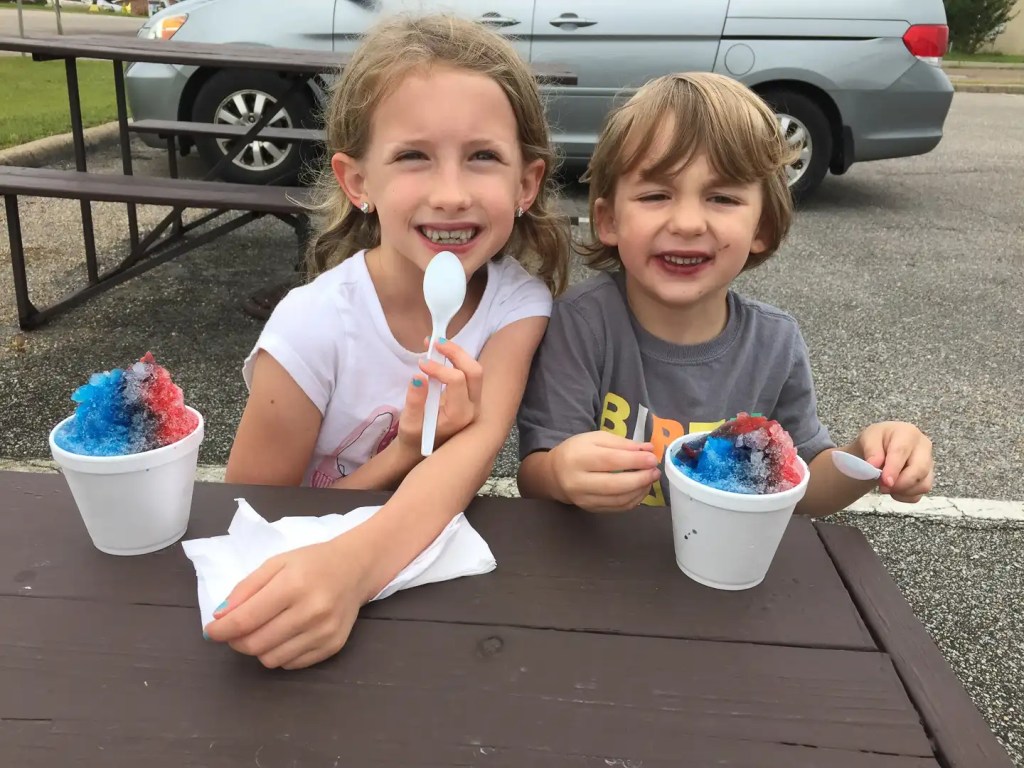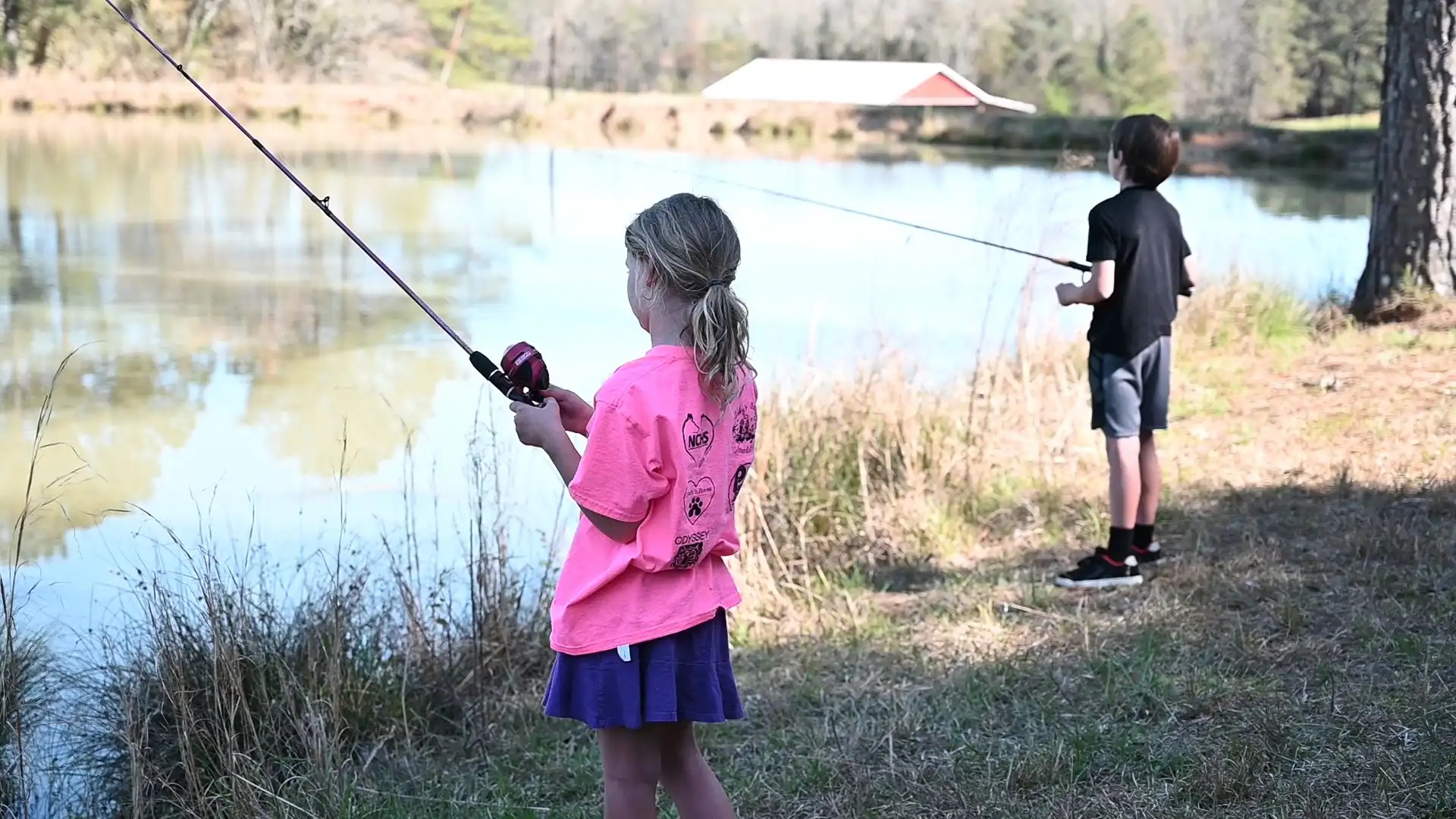
Fishing with kids is a lot of fun, especially if it’s their first time. Make the trip even more enjoyable with these seven tips.
Know The Rules And Regulations
Before heading out on your first fishing adventure, be sure you know the rules and regulations in your state. Some states require fishing licenses for children of certain ages. Some states just require an adult to have a license. There may be specific rules and fees for the location you choose. Fees can be paid online or in person depending on the locale. Other regulations to check are whether the area is catch and release, if there is a max number of fish you can take, what fish are off-limits to bring home and if there are any size regulations.

Emphasize Safety
Safety should be a top priority when fishing. Before that first line is dropped in the water, go over rules for staying safe. Stable and flat ground areas are ideal, free from hazards like rocks in case you need to retrieve a tangled line or a fighting fish. If you are fishing near fast-moving water or from a boat, be sure that your little one is wearing a life jacket (PFD). Teach children how to walk around other anglers with enough space to avoid getting snagged by a line. Make sure they understand to keep their pole below the waist and how to lower the rod safely. Another tip is to wait to clean the fish until you get home as it can be hard to watch little ones along the shoreline through the cleaning process. Don’t forget to wash your hands (wipes and sanitizer work, too) after fishing.
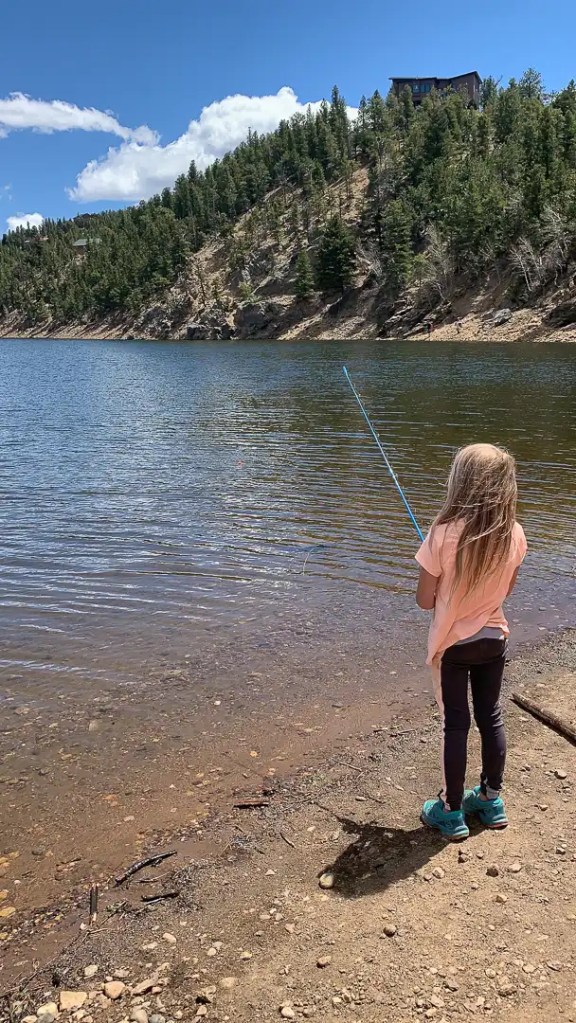
Start With Simple Equipment
Don’t complicate your first fishing experience with difficult equipment. Many manufacturers including Zebco, Kid Casters and Ugly Stik make children specific spincast poles, some even with popular movie and TV characters. They are made for smaller hands and are simple to use for beginners. Do your research beforehand to be sure you have the right bait as well. Live bait is usually recommended especially for first fishing trips. A net, sunscreen and bug spray are essentials. Some other things to consider bringing are things to pass the time while you wait for a bite. Snacks, coloring or journal supplies, bug catchers and binoculars can all help when you are waiting for the fishies.

Fish Near Home
There is no need to go big for your first fishing outing. Pick a place close to home and familiarize yourself with the type of fish you can catch and the best bait to use. Choose a small body of water like a pond that you know is well stocked and easy to fish at. Limit your time on the water, or at the water’s edge, to just an hour or so based on the child’s age. Kids have a short attention span, and fishing requires focus and patience.
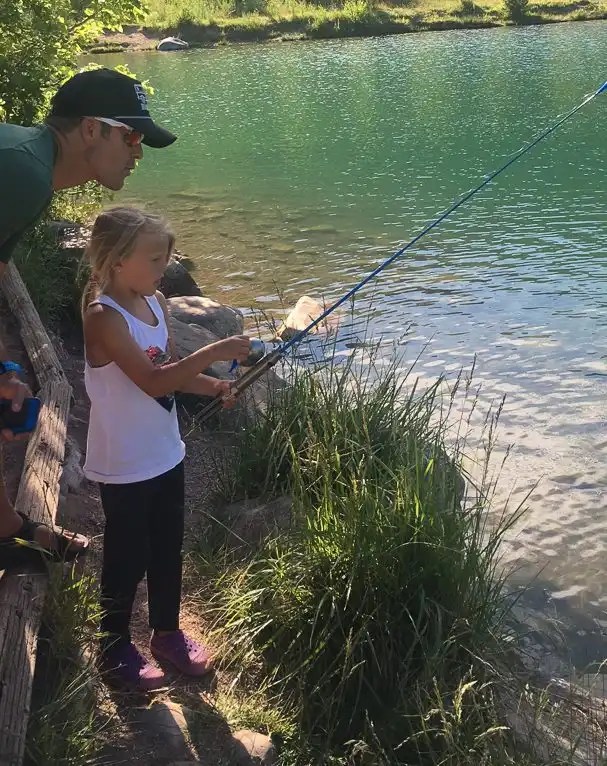
Make It A Positive Experience
Begin with teaching kids easy fishing terminology from what a bobber and bait are to casting and reeling. Once at your fishing spot, start by teaching proper technique. This way, you can focus on the positives and give real-time hands-on tips for improvement. Work at your little angler’s comfort level. Maybe they won’t want to take the fish off the line or put bait on a hook. That is OK, because over time they will likely become more comfortable with these steps. Younger children may not be able to cast on their own or reel in a fish without a helping hand. Encourage them every time they cast a line, bait a hook or just for being patient while waiting for the fish to come. Focus on the fun as fishing can be an activity to enjoy all of your life.
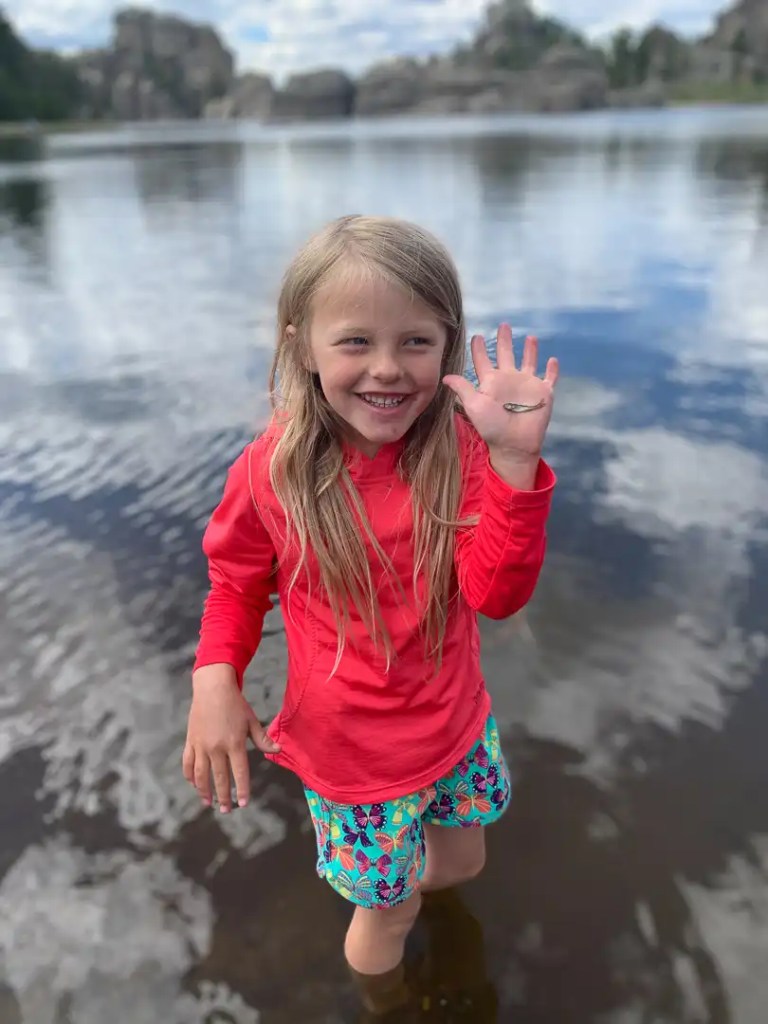
Let Your Kiddo Reel In The Fish
While there may be some steps in catching a fish that your child won’t be able to do, reeling in a fish is something they can do on their own or with some hands-on help. Let them hold the rod, or if a fish is biting, call them over to reel it in. There is nothing like the magic of reeling in that first fish! Celebrate by taking a picture of their great catch!
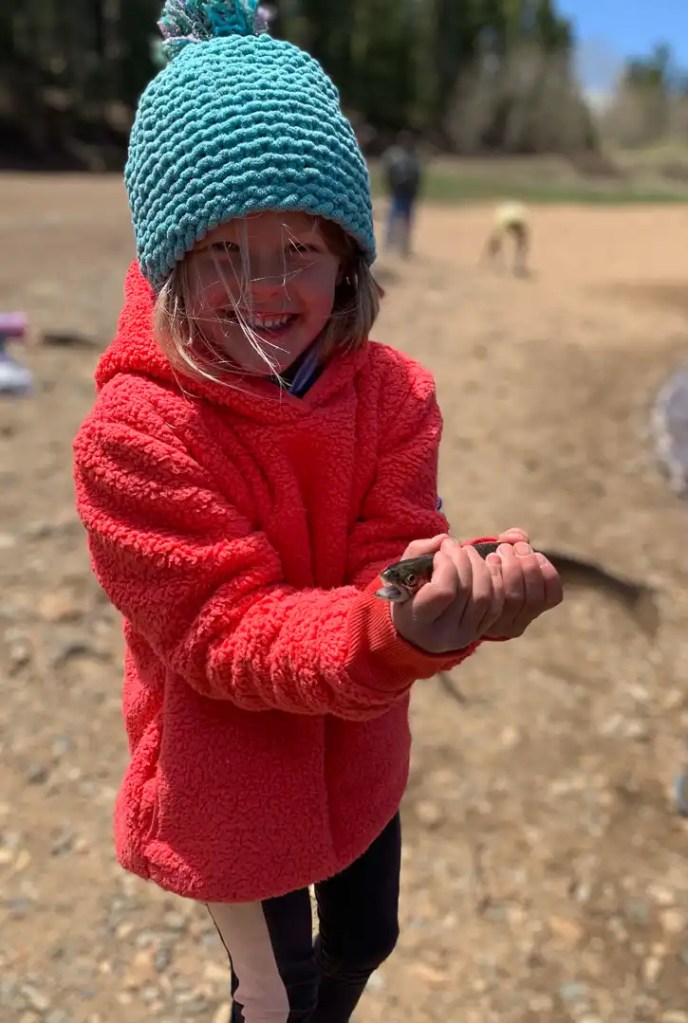
Have A Plan If You Don’t Catch A Fish
If you follow most of these tips, the odds are in your favor that your angler will catch a fish. But, sometimes the fish just aren’t biting. In this case, have a backup plan to help take away the disappointment. Focus on the positives about your outing. Stop for ice cream on the way home as ice cream always makes things better. Don’t forget to make a plan for your next outing to encourage them to give it a go again.
